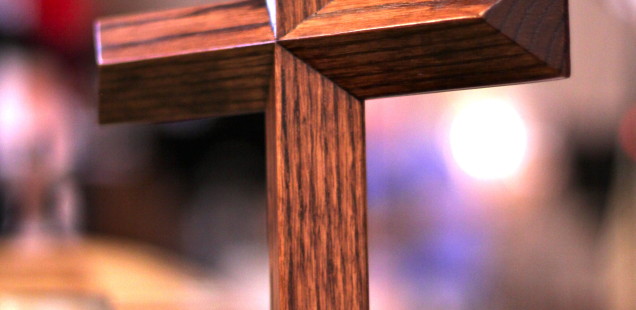
Why The Church Goes To church
When C.S. Lewis was (re)converted to Christianity he wrestled with the question of whether or not he would join and participate in the worship and life of a local church. He writes:
I thought that I could do it on my own, by retiring to my rooms and reading theology, and I wouldn’t go to the churches… But as I went on I saw the great merit of it. I came up against different people of quite different outlooks and different education, and then gradually my conceit just began peeling off. I realized that the hymns (which were sixth-rate music) were, nevertheless, being sung with devotion and benefit by an old saint in elastic-side boots in the opposite pew, and then you realize that you aren’t fit to clean those boots. It gets you out of your solitary conceit.
We all know of the conceit of which Lewis speaks – the tempting impulse to individualize the Christian faith: “I can do it on my own” or “I can do it with just my family” or “I can have the deep Christian community I need with just my friends; it doesn’t matter if I go to church all that much.”
Thoughts like these are simply the hubris of our broken, self-loving hearts being applied to a relationship with Christ. The problem – better yet, one of the many problems – is that, according to the Scriptures and the teaching of the Church from its founding, to be in a relationship with Jesus is also to be in a relationship with the rest of his followers. There is no “either/or” when it comes to Christ and the Church; there is only “both/and.” I can only worship God as He fully desires and deserves and I can only be transformed into someone who bears His image along with others… others of His choosing, not mine.
That, according to Lewis, is the “great merit” of being a part of a church – true worship and real transformation. God delights in “different people of quite different outlooks and different educations” all gathering together to ascribe worth to the one singular and primary Reality that connects them all, namely Himself. It is in the midst of God’s delight and our devotion (or we could say God’s devotion and our delight) experienced especially during worship that our “solitary conceit” begins to slough off, like a snake shedding its skin… or, as it was for the Apostle Paul, like scales falling from our eyes. And we can see – see God in ways we couldn’t before and see other Christians as God sees them… as those whose elastic-side boots we aren’t fit to clean.
I invite you to join me this Sunday at our first All About All Saints class as we explore what it means to not do Christianity on our own, but as a church of “elastic-side boots singing sixth-rate music” whose conceit is gradually peeling off.
-Tim
All About All Saints classes meet Feb. 23, Mar. 2, 23, & 30 after both worship services. Register for morning or evening classes.